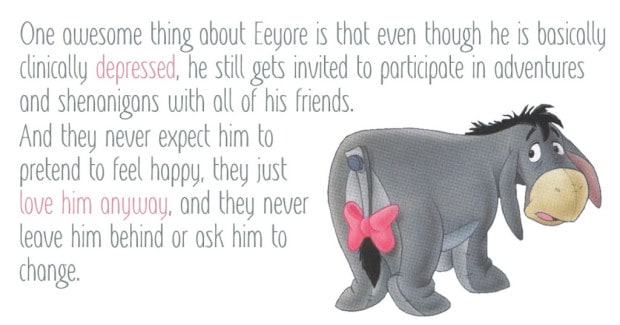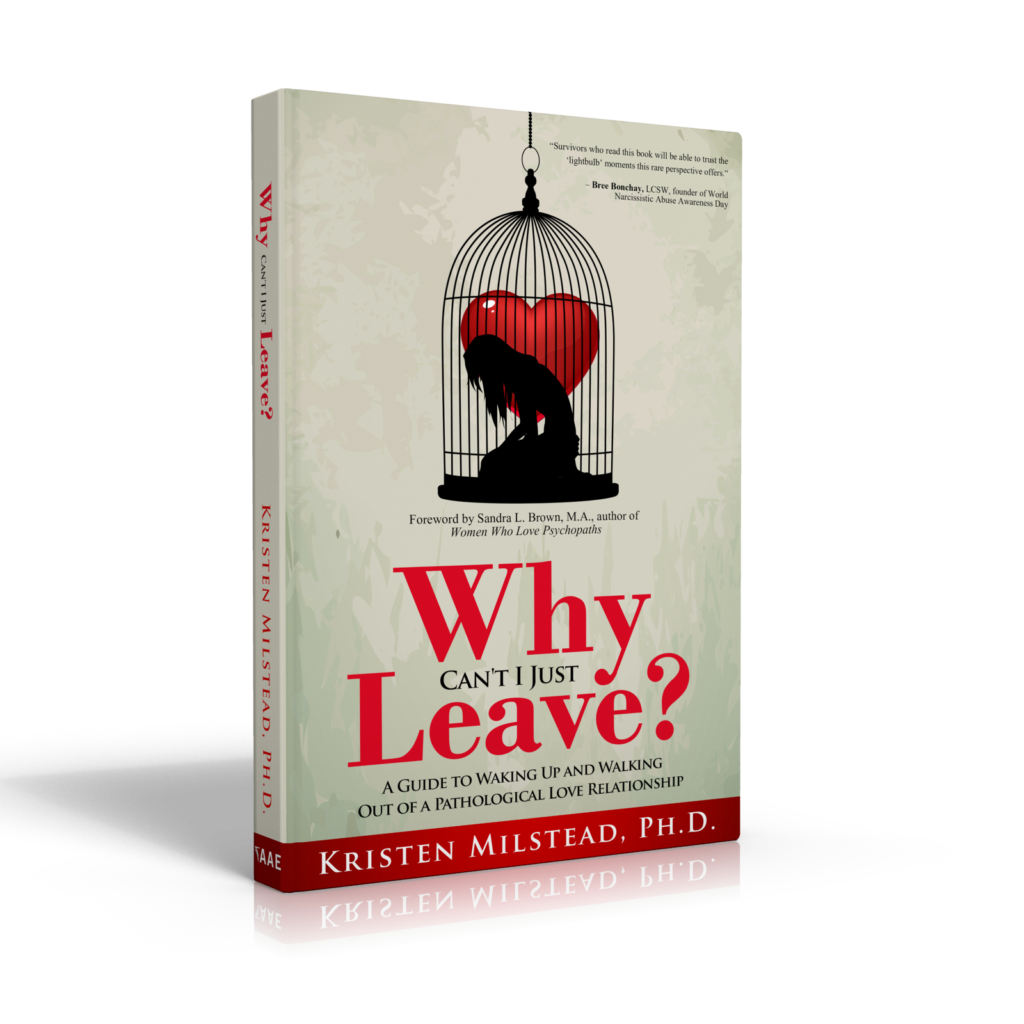To be human is to know both joy and pain. Loss, suffering, grief, loneliness, and sadness are inescapable parts of the human condition that everyone experiences. Their ubiquity does not make them something that we should minimize or dismiss.
These profound emotions and life experiences should not, however, be confused with living with PTSD.
It’s important to acknowledge that there is no linear timeline for grief or loss, “getting over” an event and everyone experiences loss and sometimes suffers.
Trauma stands apart from these other normalized parts of the human experience. There are some experiences that are so psychologically damaging that, however, and PTSD can, therefore be misunderstood.
This is an article for both survivors of trauma due and their loved ones. It is primarily focused on those who have been in abusive situations, but most can be broadly applied to those who have PTSD due to any situation they have encountered.
The information in it is derived from my recent research on what causes trauma and how it affects the body and brain, my personal experiences in dealing with and managing it, the communication I have had with others about their experiences with it, and what research says helps in terms of recovering from it.

What Everyone Living with PTSD Wishes People Knew
1. Trauma is an Uncontrollable Chemical Response to Severely Distressing, Abnormal Life Events
The events that cause trauma do so because they shock the brain into a state of prolonged hyper-arousal due to unexpected, horrifying or life-threatening incidents.
The adjustment to a consistent state of anxiety in which a person must consistently be on guard for threats, perceived or actual. A person’s coping mechanisms are hijacked by a flood of chemicals that tell that person to stay on high alert for danger. This actually changes the way the brain functions and responds to stress.
In other words, people just don’t revert back to the way they used to be even after the event is over.
After months or years of this unnatural bombardment of a survival-state chemical flood in the brain– which helped the person survive the situation or was activated to help the person maintain awareness to keep himself or herself safe, the limbic system becomes permanently altered.
What types of events can cause this to happen? It depends, as we now know there are two main types of psychological responses that can develop, depending on the type, duration, or number of traumatic events that occur.
The two main types of responses (or diagnoses) related to trauma and traumatic events are:
- Posttraumatic Stress Disorder (PTSD), which is a state of extreme anxiety that activates the “fight or flight” response on a consistent basis. It is so encompassing that a person’s thoughts, emotions, and beliefs about the world are all affected. It is caused by a single traumatic incident or an event with a time-limited duration, such as an accident, natural disaster, sexual assault, or tour of duty.
- Complex Posttraumatic Stress Disorder (C-PTSD) is a deeper-level response that results in a state of identity disruption, emotion dysregulation and/or distorted perceptions of others, and also usually includes all of the symptoms of PTSD as well. It is caused by a chronic and prolonged period of trauma almost always involving the removal of control and free will and the inability to escape or perception of such. Examples include child abuse, Prisoners of War, cults, domestic violence, forced prostitution, or can occur when multiple traumas layer atop one another.
2. PTSD or CPTSD Symptoms are Not Personality Characteristics
Managing constant feelings of “fight or flight” mode takes up a lot of brain space. It’s not really conscious, but it’s always there, in the background, ready to jump to the forefront so a quick decision can be made if need be.
The more traumatizing someone’s recent life has been, the more quickly it can be activated.
Yet, on the flip side, the more a person has been able to move away from triggering events and people who are harmful, cruel, or show a lack of empathy or signs of being callous (if their trauma was caused by a person), the more these reactions fade into the background with good therapy.
The important thing to remember is that “fight or flight” modes are normal, we all have them, and they keep us safe from danger.
That they are on overdrive for people who have been through severely traumatic events is not an indication of who a person really is. The reactions are a maladaptive artifact of a dangerous environment in which the person may no longer be living, but the brain has rewired itself due to this environment.
This is especially important to remember for people who didn’t know someone before they encountered a traumatic event. That person had a life you never saw before whatever it was hit them and stopped their life cold.
3. People With Trauma Aren’t Trying to Hold Onto What Happened and Hate Being Thought of as Victims
In fact, they would rather not be dealing with this at all. Some try to hide it. Some try to ignore it. Some try to suppress it. Mostly it engenders a lot of shame.
But what regardless of how they manage their emotions about merely having it, what trauma survivors still have to do is learn how to navigate day-to-day in what feels like a landmine just to function.
Speaking for myself and most people I know who deal with trauma-related issues, we aren’t even thinking of life consciously as a landmine as we live it most of the time– but sometimes a trigger gets tripped anyway.
And we also navigate by learning what to avoid, exposing ourselves slowly to what we think we can handle, dealing with things as they come up, and learning from what didn’t work.
Pretty much like how everyone else handles everything–except there’s a host of debilitating and overwhelming thoughts and emotions that can flood us at strange times.
But let me be honest here. People who are in the serious throes of PTSD or C-PTSD can’t predict with a great level of accuracy what their day might end up looking like.
For example, as far as myself, most days, I wake up feeling well. By mid-day (or not), there could be several things that start to give me a panic attack that I won’t go into. By evening, my plans might end up totally shot if I haven’t gotten a handle on them or even if I have, but I’m exhausted by the energy it took.
My mind wanders into strange tangents depending on sounds, songs, people or places I’m exposed to or even thoughts I have and so I deal with it and then get back to my business at hand.
An emotional response may feel out of sync, and then I need to get things back under control. Sometimes (given a situation I’m in right now that I can’t talk about) my emotional response is entirely appropriate after I bounce it off others later.
Yet I still need to reign in my reaction because I know that my “self-protection” (read: “fight-or-flight” mode) is on overdrive and is at the breaking point.
So as far as the whole “holding onto events” idea” if only I could erase my memories of the things that have traumatized me. You know those films where people get to do that. No one in their right mind would want to go around feeling like this– or certainly acting like this either. (See #5 below).
And the thing I’d want people to understand is that I (and everyone I know in this position) is using every resource available to them to ensure that they can continue to be a high-functioning person and still take care of themselves enough to eventually put this far enough in the background that it won’t use so much of their energy at all.
It would be my dream– and the dream of every person I know who has PTSD and C-PTSD– to wake up without it. I sometimes wonder who I would have been without it. Ah well… here I am now. We press onward.
4. People With Trauma Feel Caught in a Lot of Catch-22s
A Catch-22 is a set of paradoxical rules that, when applied to someone, they can’t “win” no matter what they are doing. In this case, “win” just means that there is no way for them to be seen in anything but a negative or derogatory light because two rules are being applied simultaneously but they contradict each other.
Another way of saying this is they are in a “double bind.”
These double binds pertaining to PTSD and C-PTSD include:
- what should traumatize people
- how trauma should manifest itself
- how long trauma should last
- how people should express their trauma
Here are some examples, based both on my experience and with talking to others:
- Speaking about what you’ve been through:
- You may be applauded for empowering yourself (but only to a certain degree if you don’t make too many people uncomfortable)
- You may be accused of wallowing in your pain
- You may be accused of not having anything to be traumatized about if others don’t understand the seriousness of what you went through
- You may be accused of bottling up your pain in an unhealthy way if you decide not to talk about it, even if you don’t think people will understand
- Speaking up about how bad it was:
- You may be blamed for having been in the situation in the first place somehow if it was “that bad”
- You may be accused of exaggerating because you’re ‘so high-functioning’ and you’re ‘such a strong person’ so it couldn’t possibly have been so bad
- You may feel obligated or pressured to share your story to defend why you’re traumatized, yet then not be believed, told it wasn’t that bad, blamed for being in the situation, or told you should be over it by now and should move on
- Learning more about the events in order to get a better understanding:
- You may be accused of being obsessed if you try to learn about it beyond your own experience
- You may be accused of being too biased to say anything meaningful about it if you speak from your own experience
- You may be accused of trying to suppress what happened or “deal with the past” if you aren’t doing it at the rate or way that others deem is appropriate
- Non-linear recovery:
- If you have a good day, then you must not be traumatized
- If you have a bad day, then you’re wallowing in what you went through
- If you happen to cry around someone, then you want attention
- If you withdraw from others so they don’t see you cry, then you’re isolating yourself and not trying to move on
- Recovery
- If you do express emotion, you’re not trying to get better
- If you don’t express emotion, you’re not trying to get better
- If you do talk about it, you’re not trying to get better
- If you don’t talk about it, you’re not trying to get better
- If you do date new people, you’re not trying to get better first
- If you don’t date new people, you’re not trying to get better
- If you do attend social events, you need to get better first
- If you don’t attend social events, you’re not trying to get better
- If you can’t forgive the other person, you can’t move on or you’re trying to stay in a victim mentality
- If you can’t leave, if must not be bad enough
In other words, once you have identified the problem, that you have been a victim of an abusive situation, anything you do may be perceived by others as problematic. Those who have been in situations so negative that it has caused damage to their lives make other people uncomfortable, because they don’t know how to act.
It reminds them that bad things happen in the world. Most of us just don’t have a good idea of what to do when someone we encounter has PTSD.
Well, we’re here and we aren’t going anywhere.
I mention all of these things with the hope that most people are not aware that these double (triple/quadruple/etc.) binds exist, not to indict or reprimand anyone.
I know that these situations are not all unique to people who go through traumatic situations such as accidents or abuse.
For example, if you have experienced grief over the loss of a loved one, you may have had people insinuate that you’re taking too long to “get over it,” or think you aren’t acting in an appropriate manner– that you didn’t cry enough or when you should have or whatever.
This brings me to my next two points, which are crucial, and then my final point, and actually getting better.
5. People Living with PTSD Can Have a Harder Time Making Friends
Trauma and friendship don’t always go hand-in-hand, which is a sad thing, because so much goes unsaid, misunderstood, and besides all that, people just need people and it’s all just so tragic for everyone involved.
Trauma can make people flaky. But not always for the reasons you might think.
People may break plans or have a hard time showing up because they didn’t predict that on the day they were supposed to do something really awesome with a group of friends, they suddenly had a major panic attack or an emotional flashback, or some other major trauma symptom. We may also show up very late if it took us a while to get things under control.
Look, we know when we aren’t going to be good company. We just aren’t going to come along sometimes so everyone else can go about their fun or may wait until we are feeling better, and we’re doing it to be polite.
Also, as a side note, I do want to be clear that those who do have C-PTSD sometimes often have a desire to alienate themselves from others anyway, so this is a danger for them. Their traumatic incidents have either been rooted in childhood, or they have had so many, that they often feel different from others.
As inconvenient as breaking plans is for others, we already know you don’t want to deal with our nonsense in certain situations. Look, we don’t want to deal with it either. It’s way more inconvenient and painful for us. I promise, and if we could control it, we would. We all look forward to the day when it gets under control.
So, yes, trauma can it difficult to make solid plans with us sometimes because of last-minute cancellations.
Those friends who dig deeper or ask if we want to talk, or come over or just hang out in a quiet setting can make all the difference in the world. But for some reason, if a cancellation is in order, you just have to trust us that, because of whatever activity was in the works, it was for your own best interest too that we didn’t go.
So let me give you some examples.
Maybe it was a small gathering where we know we will be expected to carry on personal conversations and that would not have been possible.
Maybe there were going to be a lot of strangers there.
Maybe it was going to be in an unfamiliar location.
Maybe it was going to be a huge party with a lot of noise.
Maybe we were expected to dress up and we just didn’t have the energy.
Maybe something was going to happen where we would feel exposed or unsafe for whatever reason.
Every situation, circumstance, and person is different too. A different event on that day might not have been a problem.
For example, if it was meant to be a quiet, personal event, a large event with a lot of distractions where we could disappear into a crowd might have been just fine.
But yes, PTSD can make one a “bad friend” when they’re in the middle of the cross-hairs of something.
We know. Please don’t shame us. Please don’t forget us either. We try to show up in other ways. The people I know who have PTSD are some of the most loving people I know.
It’s true… we can’t always be bright and shiny. But can anyone?
6. People With Trauma Need Friends as Much as Anyone Else– In Fact It’s Crucial
Here’s the bad thing about trauma and friendship. People who tend to have had a lot of trauma in their lives are, sadly, prone to being traumatized further.
This is at least partially because they become isolated from others with whom they could form healthy relationships.
If they withdraw or become alienated from others or are not given the opportunities to form good friendships, they may end up attaching to people who will further exploit them or traumatize them.
This happens out of loneliness or because their executive functioning deficit due to the trauma has disabled their ability to make good decisions for themselves.
It can also happen because predatory people don’t care about boundaries and will push through any walls that those with PTSD may have built to protect themselves by using deceit (Stosny, 2008).
Forming or maintaining bonds with people when you are living with PTSD is hard, and yet avoiding being re-traumatized so you can heal is also hard.
Yet the more traumatized you become, the harder it becomes to form healthy bonds. And this is how the downward spiral forms where people end up in exploitative patterns where they are continually traumatized and can’t ever seem to recover and get their lives on track.
This is just something to note. People are not choosing consciously to victimize themselves. They are choosing not to be lonely, or they are unable to see past the pattern that is already entrenched in their lives.

A woman looks up into the sunlight with joy.
7. Living with PTSD and C-PTSD Doesn’t Have to Be a Lifelong Sentence
Some of the information in this article may have seemed gloomy or fatalistic.
There are many different treatments for both PTSD and C-PTSD available now– good ones, and many people recover almost completely or learn to manage their symptoms so that they barely affect their every day lives.
Others are in the process of learning how or undergoing treatment or finding out what works for them.
C-PTSD is more difficult, as it affects someone’s core identity, however, there are many people who say they have recovered from it and are living happy, healthy lives. Having the treatment they need is key, as well as a supportive environment and the removal of toxic people who trigger and re-traumatize them.
There’s no timetable for healing, however. Just as people don’t choose to be traumatized, neither do they choose how long it takes to recover.
Having a strong support system can make the difference between recovering quickly, recovering sooner rather than later, or never recovering.
* * * * *

Everyone, including those who haven’t experienced traumatic events, has a story and is living with and going through difficult things that few people may know about. It always helps to be just a little kinder and more understanding to those around us.
Want more? Get more articles like this one delivered straight to your inbox.
Don’t forget to check out these free resources:
Source
Stosny, Steven. 2008. “Are You Dating an Abuser?” Psychology Today. Accessed on August 4, 2019 at https://www.psychologytoday.com/us/blog/anger-in-the-age-entitlement/200812/are-you-dating-abuser






5 Comments
Guy
Hi Kristen, I once learnt about a technique where you take a bad memory , and then you introduce a cartoon character into it and keep running that through your mind until you can never have the memory again without this sense of riculousness or humour attached to it. Worked for me at the time, so just thought I’d mention it here if anyone finds it useful. Thanks, Guy
Carolyn
Hi Kristen!
I just now ambcalm enough to type this response.
Your article miraculously appeared so to speak at the exact moment
I’d had a majjjjjjjjor trigger.
Thank you sooooooo very much for this information, as I truly get worn out if you will on ppl shaming me…get over it or you should be over it by now.
Here’s a great one, Kristen…”What happened to you? You have a college degree! I said. “LIFE happened to me and it could happen to y o u at any minute!!!!
Please forgive me for, improper netiquette just now
.
Kathleen
Thank you…you have said it all so well.
Kathleen
Thank you…you have said it all so well.
Kristen Milstead
Hi Kathleen: You are so welcome and I’m glad that you found the post helpful Thank you for visiting my blog and taking the time to leave a comment. -Kristen